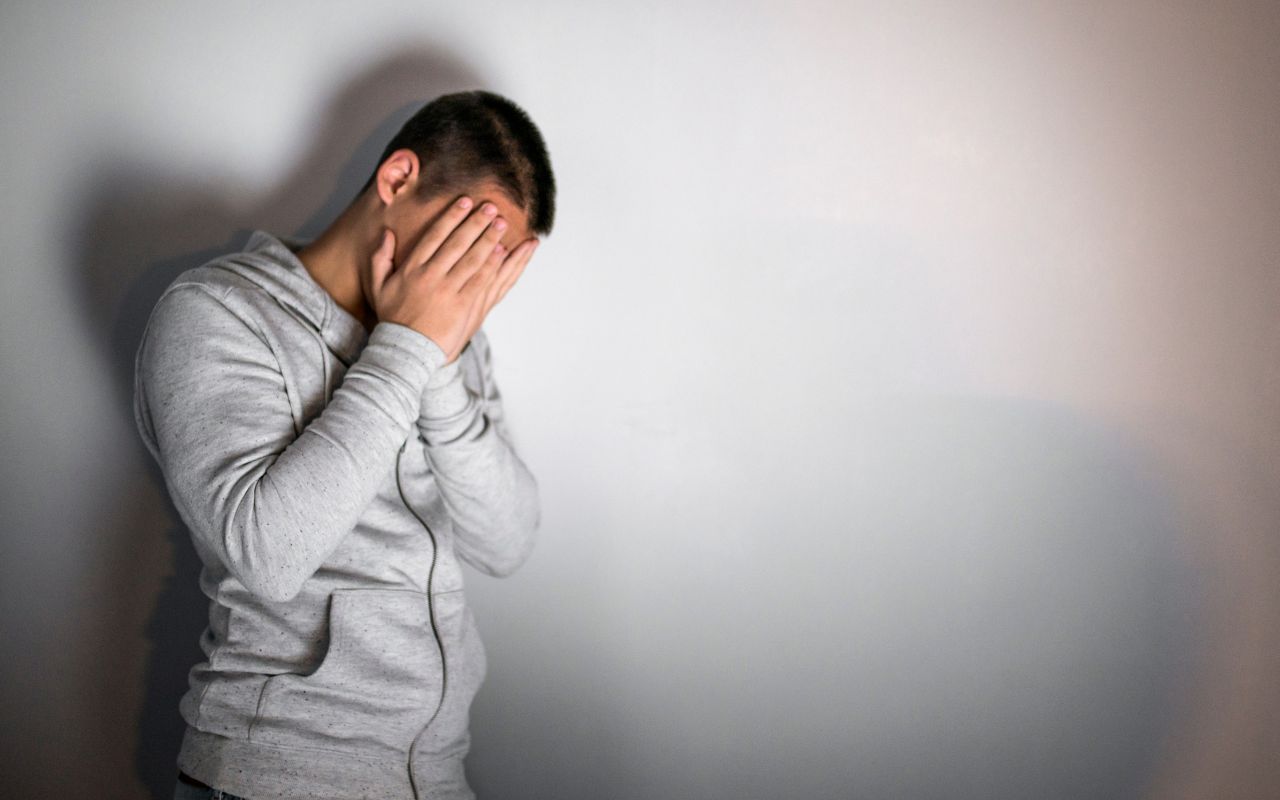Guilt is an intricate and multifaceted emotion experienced by humans across all cultures and times. It's an emotion deeply embedded in our moral fabric, often serving as a guide to our actions and interactions. However, the complexity of guilt means it can also be a source of profound psychological distress. This article delves into the nature of guilt, its causes, effects, and strategies for management, providing a comprehensive understanding of this powerful emotion.
Guilt can be defined as the feeling that arises when one believes they have violated a moral standard, leading to feelings of remorse and responsibility. It is often described as a self-conscious emotion involving reflection on oneself and one's actions. This emotion is crucial for social harmony as it encourages individuals to adhere to societal norms and repair relationships when they go awry. However, when experienced in excess or inappropriately, guilt can become a heavy burden, impacting mental health and overall well-being.
The Nature and Causes of Guilt
Guilt is primarily a result of self-evaluation against personal or societal moral standards. It can arise from various situations, such as committing an act perceived as wrong, failing to take action when one should have, or even harboring thoughts that conflict with one's moral beliefs. The spectrum of guilt can range from healthy, adaptive guilt to unhealthy, irrational guilt.
Healthy Guilt: This type of guilt occurs when individuals recognize that they have done something wrong and feel remorseful. It serves as an internal corrective mechanism, prompting the person to make amends and avoid similar actions in the future. For example, feeling guilty about lying to a friend can motivate someone to apologize and rebuild trust.
Unhealthy guilt is irrational and excessive, often based on distorted perceptions of responsibility or the overestimation of the harm caused. It can stem from a misunderstanding of one's role in a situation or unrealistic expectations of oneself. For instance, a person might feel guilty for not being able to prevent a natural disaster or for taking time for self-care.
The distinction between guilt and shame is also essential. While guilt is linked to specific actions or behaviors, shame is a more pervasive feeling that reflects negatively on one's entire self. In essence, guilt says, “I did something bad,” whereas shame says, “I am bad.” Understanding this difference is crucial for addressing these emotions appropriately.
The Prosocial Role of Guilt
Although guilt is often uncomfortable, it plays a significant role in maintaining social bonds and promoting ethical behavior. It acts as a moral compass, guiding individuals from actions that could harm others or disrupt social harmony. For instance, guilt can motivate people to apologize, make reparations, and change their behavior to prevent future transgressions.
Research suggests guilt-proneness, the tendency to feel guilty, is associated with empathy and trustworthiness. Individuals more prone to guilt are often more attuned to the feelings of others and are more likely to engage in prosocial behaviors. This connection underscores the adaptive function of guilt in fostering cooperative and healthy social interactions.
However, while guilt can serve these positive functions, it becomes problematic when it is disproportionate or chronic. Excessive guilt can lead to mental health issues, such as anxiety or depression, and hinder an individual's ability to function effectively.
Coping with Guilt
Given the potential for guilt to become overwhelming, developing effective coping strategies is essential. These strategies can help individuals healthily manage their guilt, allowing them to learn and grow from their experiences without becoming mired in negative emotions.
Self-Reflection and Acceptance: One of the first steps in coping with guilt is self-reflection. This involves acknowledging and understanding the source of guilt, recognizing the harm caused, and accepting responsibility. Self-reflection should be accompanied by self-compassion, as harsh self-criticism can exacerbate feelings of guilt and hinder the healing process.
Making Amends: Taking proactive steps to rectify the situation can alleviate feelings of guilt. This may involve apologizing, offering reparations, or taking action to prevent similar occurrences. Making amends helps to restore damaged relationships and demonstrates a commitment to ethical behavior.
Seeking Support: Sharing feelings of guilt with a trusted friend, family member, or therapist can be incredibly beneficial. Talking about guilt can diffuse its intensity and provide new perspectives. Professional support, such as therapy, can be particularly helpful in addressing deep-seated guilt and developing effective coping mechanisms.
Reframing and Cognitive Restructuring: Cognitive-behavioral techniques can help individuals reframe their thoughts and challenge irrational guilt. This involves identifying and questioning distorted beliefs about responsibility and harm and replacing them with more balanced and realistic perspectives. For example, recognizing that one cannot control all aspects of a situation can reduce undue feelings of guilt.
Mindfulness and Self-Compassion: Mindfulness practices can help individuals stay present and non-judgmental towards their feelings of guilt. Self-compassion involves treating oneself with kindness and understanding during times of distress rather than with harsh criticism. This approach can mitigate the adverse effects of guilt and promote emotional resilience.
The Impact of Guilt on Mental Health
While guilt can motivate positive change, chronic or excessive guilt can have detrimental effects on mental health. Persistent guilt can contribute to conditions such as depression, anxiety, and obsessive-compulsive disorder (OCD). Understanding these links can help identify when guilt has become problematic and requires intervention.
For individuals with OCD, guilt can be particularly pervasive. OCD often involves intrusive thoughts and compulsions that are driven by guilt and fear of causing harm. In these cases, traditional talk therapy may not be effective and can even exacerbate symptoms. Instead, exposure and response prevention (ERP) therapy is highly effective. ERP involves gradually exposing individuals to their fears and helping them resist the urge to engage in compulsive behaviors, thereby reducing guilt and anxiety over time. Learn more about ERP therapy.
Depression is another condition where guilt plays a significant role. Individuals with depression often experience pervasive feelings of guilt and worthlessness, which can exacerbate their symptoms and hinder recovery. Therapeutic approaches such as cognitive-behavioral therapy (CBT) can help individuals address these feelings by challenging negative thought patterns and developing healthier coping mechanisms.
Strategies for Overcoming Guilt
Given the impact of guilt on mental health, it is essential to develop strategies for overcoming excessive or chronic guilt. These strategies can help individuals regain balance and move forward positively.
Self-Forgiveness: Forgiving oneself is a critical step in overcoming guilt. This involves acknowledging the mistake, taking responsibility, and then letting go of the negative feelings associated with the action. Self-forgiveness is not about excusing harmful behavior but recognizing one's humanity and allowing oneself to move forward.
Developing a Growth Mindset: Viewing mistakes as opportunities for learning and growth can transform the experience of guilt. A growth mindset encourages individuals to see setbacks as temporary and surmountable rather than as defining their worth. This perspective can foster resilience and reduce the intensity of guilt.
Setting Boundaries: Recognizing the limits of one's responsibility is important. Setting healthy boundaries involves understanding what one can and cannot control and not taking on excessive guilt for situations beyond one's control. This can be particularly relevant in interpersonal relationships, where individuals may feel undue guilt for others' emotions or actions.
Practicing Gratitude: Focusing on positive aspects and expressing gratitude can shift attention away from guilt and towards constructive emotions. Gratitude practices, such as keeping a gratitude journal or expressing thanks to others, can enhance overall well-being and reduce the burden of guilt.
Engaging in Meaningful Activities: Involvement in activities that align with one's values and contribute to a sense of purpose can counteract feelings of guilt. Engaging in meaningful work, volunteering, or pursuing hobbies can provide a sense of fulfillment and help individuals move past negative emotions.
When to Seek Professional Help
While self-help strategies can be effective, there are times when professional intervention is necessary. Persistent, intense, or debilitating guilt may indicate underlying mental health issues that require professional support. Therapists and counselors can offer valuable assistance in exploring the roots of guilt, addressing irrational guilt, and developing personalized coping strategies.
Therapy for Guilt: Various therapeutic approaches can be effective in addressing guilt. Cognitive-behavioral therapy (CBT) helps individuals identify and challenge distorted thought patterns, while psychodynamic therapy explores the underlying emotional issues contributing to guilt. GoodTherapy offers insights into different therapeutic options and how they can help individuals overcome guilt.
Group Therapy and Support Groups: Sharing experiences with others who understand can provide a sense of community and reduce feelings of isolation. Group therapy and support groups offer a space for individuals to discuss their guilt and receive support from peers. This collective approach can be particularly beneficial in normalizing guilt and providing mutual encouragement.
Medication: In some cases, medication may be necessary to manage the symptoms of conditions associated with chronic guilt, such as depression or OCD. Antidepressants or anti-anxiety medications prescribed by a healthcare professional can help alleviate the intensity of guilt and improve overall mental health.
Conclusion
Guilt is a complex and multifaceted emotion that plays a crucial role in our moral and social lives. While it can motivate positive change and foster empathy, excessive or irrational guilt can become a significant burden. Understanding the nature of guilt, its causes, and its effects is essential for managing this emotion effectively.
By developing healthy coping strategies, seeking support when needed, and embracing a compassionate and growth-oriented mindset, individuals can navigate their guilt in a way that promotes healing and personal development. Remember, guilt is a part of the human experience, but it does not have to define your life. With the right approach, it is possible to transform guilt from a source of distress into a catalyst for positive change and deeper self-awareness.
For further reading and resources on managing guilt, consider exploring articles on Psychology Today, Healthline, and AXA Health. These platforms offer valuable insights and practical advice on navigating the complexities of guilt and fostering mental well-being.









